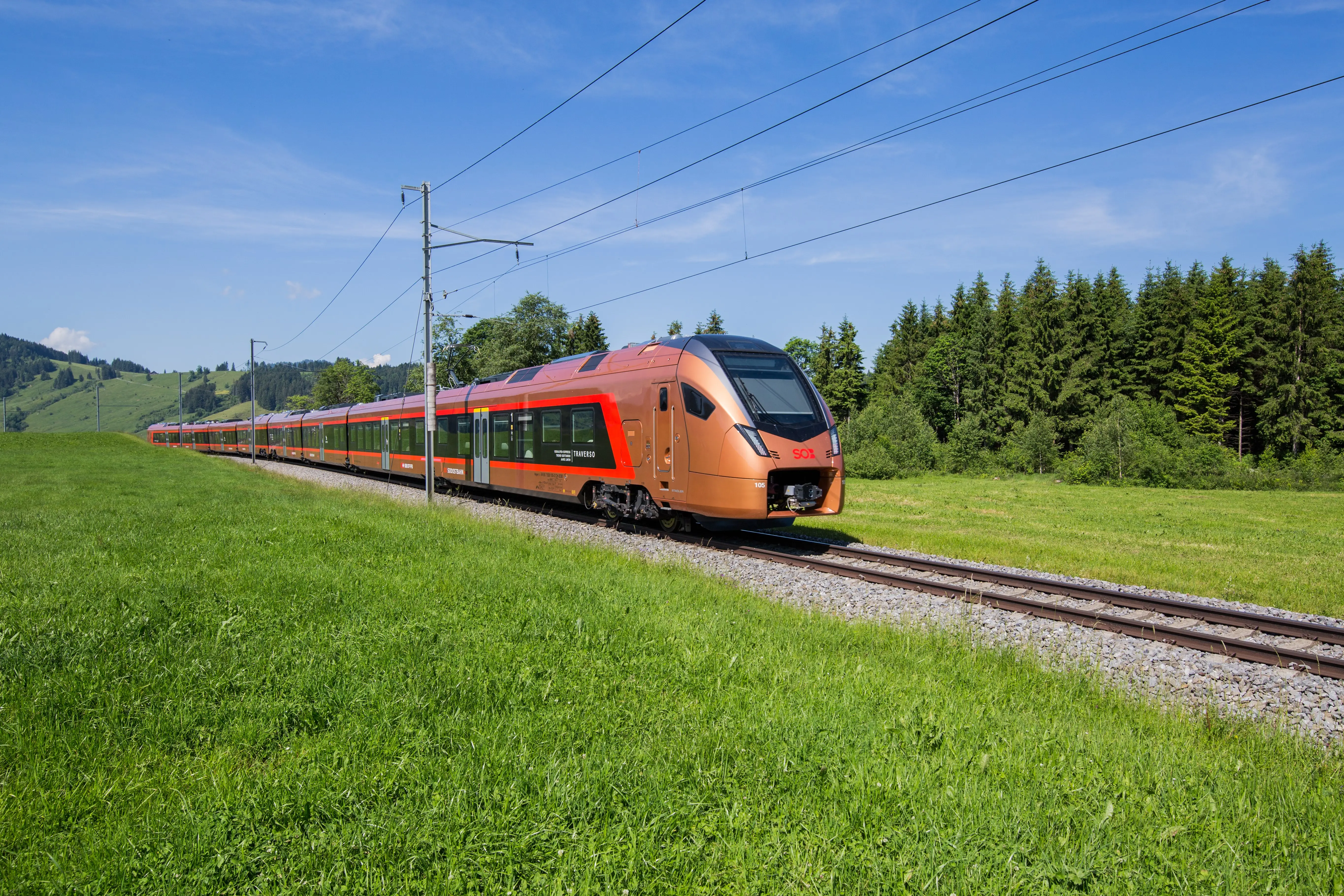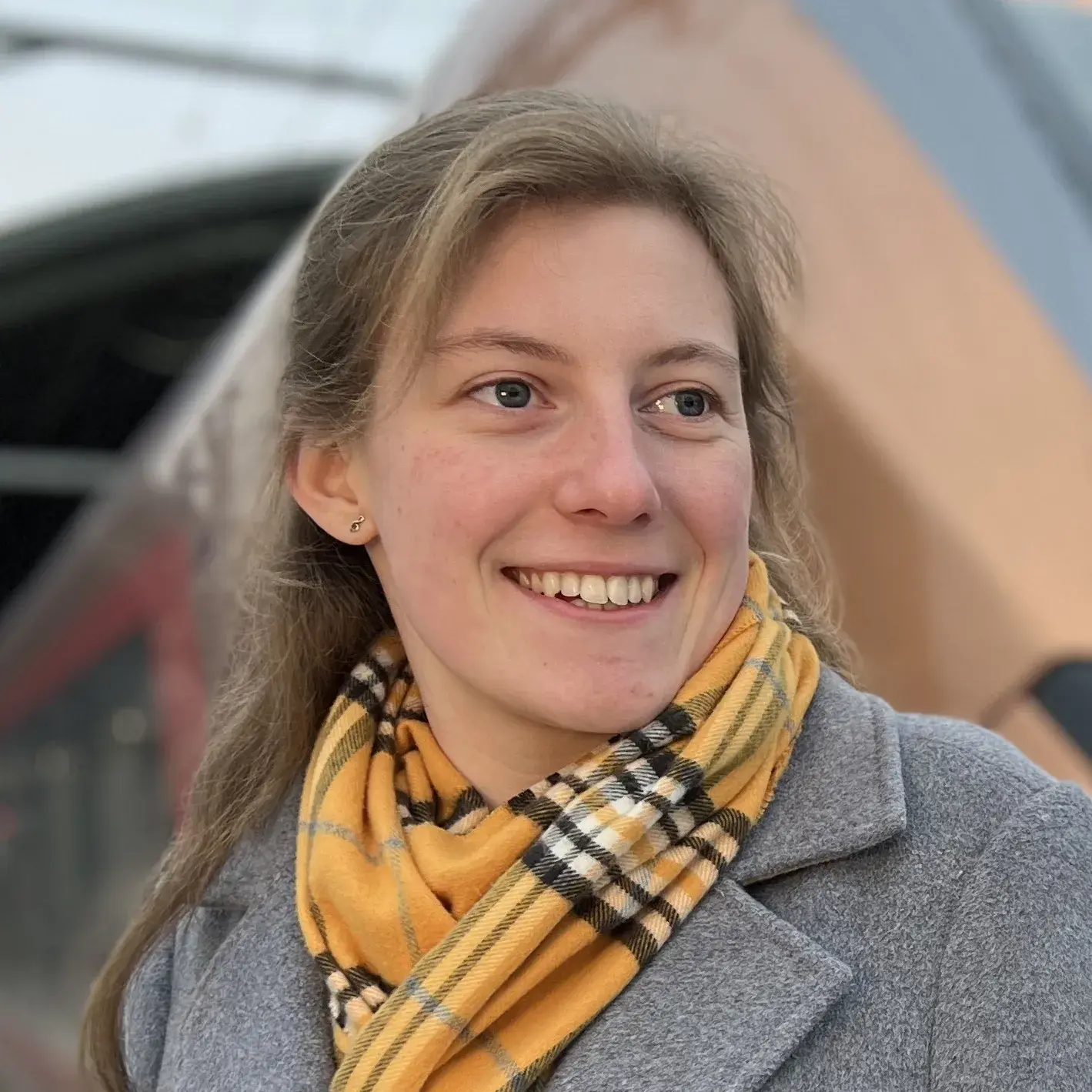“Good planning benefits everyone”
Jacqueline Keller is a service planner at Südostbahn. She draws up timetables, routes and train compositions on the basis of her calculations, giving due consideration to all those involved. She acquired a feel for how everything fits together during her Mobility Science degree programme.


She was travelling on a train herself when Jacqueline Keller first learned about the Mobility Science degree programme. She was studying for her school-leaving certificate at the time and noticed an advertising poster in the carriage. “Until then, I had actually seen myself taking up a career in journalism – radio, newspapers and photography greatly interested me”, says the graduate engineer. But she had also been fascinated by public transport from an early age.” Jacqueline Keller grew up in a “railway family”, without a car but with a large number of train drivers. The work-study Bachelor’s degree programme enabled her to take up her studies immediately after finishing school – without completing a prior internship. With the excellent grades she had achieved in mathematics at school, the foundation year was no problem for her. At the same time, her internship at the SBB provided her with initial experience of rail transport. Even before she had completed the degree programme, she had secured a job with the Schweizerische Südostbahn (SOB).
Aiming for the perfect plan
As a service planner at the SOB, Jacqueline Keller holds a varied and responsible position today. How long should the train be, when does it run, and where does it stop? The answers to these and many more questions are never selected at random but are based on complex calculations and benefit analyses. Service planners would appear to be confronted with the virtually impossible task of needing to satisfy all the parties involved. From the passenger’s point of view, the journey needs to be comfortable and efficient. Municipalities and cantons want optimum rail transport connections and, finally, everything must be technically and financially feasible for the operating company. “If we plan well, then this will always be of benefit to all the parties involved, even if it is never the optimum solution for everyone”, says Jacqueline Keller. “In the final instance, it will always be an approximation of the perfect plan.”
“Whether rail or road transport, we must always be in a position to view the system as a whole. Those studying Mobility Science confront new ideas and concepts without losing sight of the overall situation.”
Jacqueline Keller, ZHAW graduate and service planner at Südostbahn
Rethinking mobility without being radical
Although Jacqueline Keller is, to some extent, following on in her family tradition, it is important for her as a service planner at the SOB to adopt a holistic view of transport. “Whether rail or road transport, we must always be in a position to view the system as a whole. Adopting a radical approach will not get us anywhere in matters of transport”, she explains. This breadth of vision is also helping her with the current challenge of better integrating cycling in service planning. She feels that the interlinking of different issues for purposes of understanding and questioning interactions within transport is one of the key features of the degree programme. “Those studying Mobility Science are encouraged to confront new ideas and concepts without losing sight of the overall situation”, says Jacqueline Keller. “Students on the Mobility Science degree programme learn to rethink the mobility of the future.”